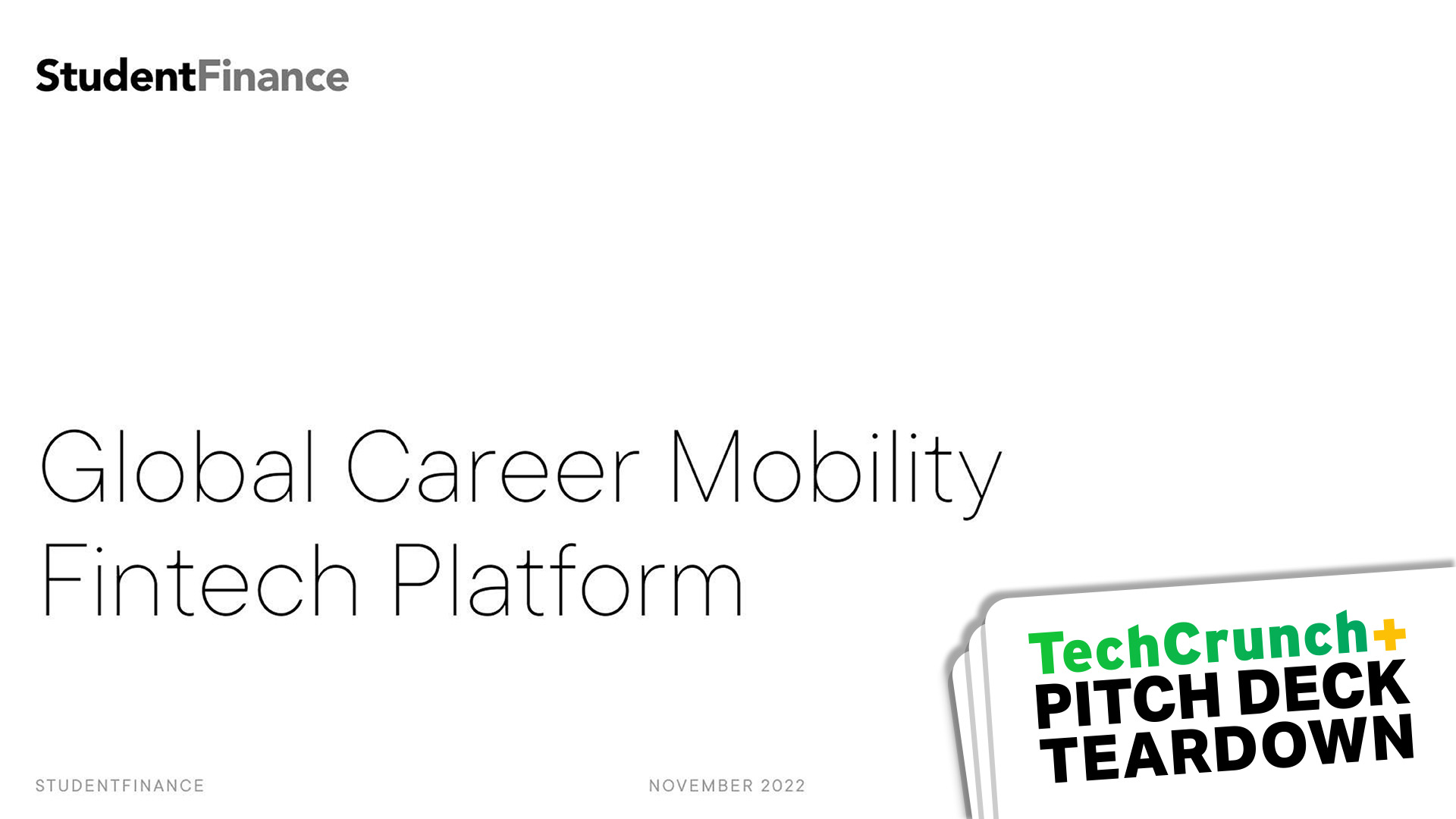It’s too early to determine whether SVB’s downfall heralds a new era for venture capital, but based on anecdotal evidence, off-the-record discussions and chats with co-workers, it seems like we’re back to business as usual as far as pre-revenue startup fundraising is concerned.
Not a scientific sampling, but I noticed that several investors signaled this week on Twitter that they remain interested in talking to founders who are still at the idea stage.
I shy away from sharing hot takes, but here’s one: With contagion contained, the VC community feels good about writing smallish checks for pre-revenue startups, but Series A and up? Más o menos.
Full TechCrunch+ articles are only available to members
Use discount code TCPLUSROUNDUP to save 20% off a one- or two-year subscription
Before Silicon Valley Bank crashed, I asked seven VCs about the startups they’re interested in backing right now, how they prefer to be approached and whether they could share any tips for first-time founders.
As long as this downturn persists, this investor Q&A will be a monthly TC+ column. If you’re a recently laid-off worker considering striking out on your own, an H-1B employee who’s had it up to here or just looking for tips and advice that can help you connect with early-stage investors, please read and share.
If you’re an investor who wants to be included in future columns, email guestcolumns@techcrunch.com with “How to pitch me” in the subject line.
Thanks very much to everyone who took the time to respond to these questions in such detail. There’s plenty of tactical advice here, and much more to come.
Here’s who participated:
- Brian Brackeen, general partner, Lightship Capital
- Masha Bucher, founder and general partner, Day One Ventures
- Rebecca Liu-Doyle, managing director, Insight Partners
- Clelia Warburg Peters, managing partner, Era Ventures
- Nick Adams, managing partner and co-founder, Differential Ventures
- Lisa Lambert, founder and president, National Grid Partners
- Elizabeth Yin, co-founder and general partner, Hustle Fund
Have a great weekend,
Walter Thompson
Editorial Manager, TechCrunch+
@yourprotagonist
Best practices for changing times: How founders should leverage AI and ML in 2023

Image Credits: Getty Images
We don’t run many articles promoting basic best practices. Suggestions like “listen to your customers” and “make data-driven decisions” are so general, they’re hard to implement.
But now that AI-driven solutions are offering search results, producing poems and generating illustrations on demand, startups need a plan for creating customized user experiences, according to Ab Gaur, founder and CEO of Verticurl.
“While excessive or unhelpful customer data can clog content pipelines, the right information can power hyper-personalization at scale,” he writes.
Zero-based budgeting: A proven framework for extending runway

Image Credits: Getty Images
It’s critical to make every dollar count in this environment, but pulling back too much in the wrong places can reduce momentum across your entire organization.
Instead of simply trimming a little off the top, more startups are turning to zero-based budgeting, an aggressive tactic in which founders return to square one for every budget period “to verify all of the line items are relevant and cost-effective,” writes FP&A analyst Healy Jones.
“The best founders look for a framework to strategically cut burn while keeping their startup’s value drivers functioning.”
5 strategies for biotech startups to outlast a market downturn

Image Credits: Getty Images
Spinning up a biotech company is a massive undertaking. Compared to a SaaS startup, the investment required to build a team, acquire research funding and ensure regulatory compliance can be staggering.
Dr. James Coates, “a venture capitalist specializing in early-stage life science companies,” says biotech founders need to look beyond their investor networks to find additional money these days.
In his latest TC+ post, he shares five action items “that could help your biotech startup navigate a cooling fundraising environment.”
Pitch Deck Teardown: StudentFinance’s $41M Series A deck

Image Credits: StudentFinance
Last month, we reported that European fintech startup StudentFinance landed a $41 million Series A to expand its service, which offers educational funding via income share agreements (ISAs).
This week, Haje Jan Kamps reviewed the company’s Series A deck, minus redactions for “sensitive revenue, cost and unit economics slides:”
- Cover
- Mission
- Opportunity
- Problem
- Solution
- Value proposition part 1
- Value proposition part 2
- Business model
- Technology
- Metrics
- Road map (labeled “expansion”)
- Geographic expansion (labeled “expansion”)
- Growth history and trajectory (labeled “expansion”)
- Team
- Contact
Dear Sophie: How can I return to the United States as a founder?

Image Credits: Bryce Durbin/TechCrunch
Dear Sophie,
I lived and worked in the United States on an L-1B for a year, and then changed to an H-1B for 2.5 years before I moved back to India (where I’m a citizen) and founded a startup.
Now I want to return to the U.S. to raise funds for my startup. What are my options for returning to the U.S. as a founder?
— Fast-Moving Founder
‘Trust is a hard thing to earn’: SVB’s closure could disproportionately affect Black founders

Image Credits: Bryce Durbin
Silicon Valley Bank’s federal takeover means former customers can access their funds, but some Black tech founders are concerned that its closure makes their uphill climb even steeper.
Because SVB’s startup-focused approach lowered barriers to banking services, it was a popular choice for many Black founders, reports Dominic-Madori Davis.
“Silicon Valley Bank was certainly willing to push the envelope and see what they could do, including investing in Black funds,” said Lightship Capital co-founder Brian Brackeen. “We don’t see that commitment from other banks.”
